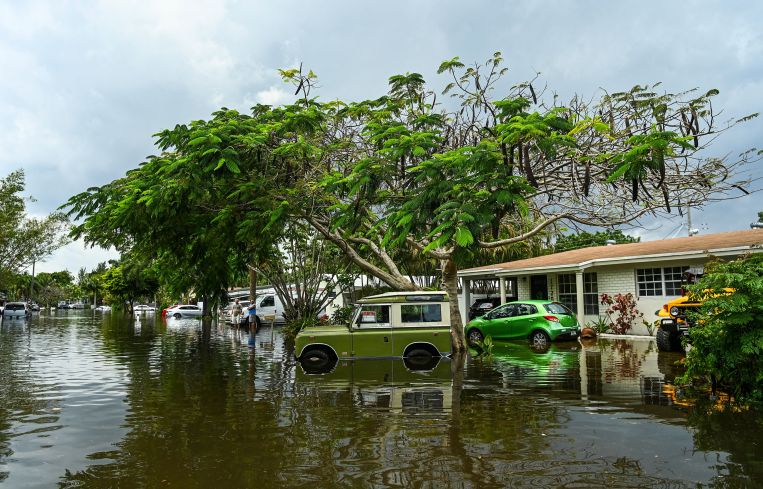Broward County Continues to Bail Out From Historic Rainfall
Schools reopened Monday after suffering more than $8M in damages
By Chava Gourarie April 17, 2023 3:56 pm
reprints
The historic floods that drenched Broward County on April 12 displaced at least 600 residents, shut down the city’s airport for two days, and closed schools until Monday morning.
While most students have now returned to their regular classes, schools across Fort Lauderdale, Hollywood, Dania Beach and Oakland Park have suffered at least $8 million in damages, a spokesperson for the Broward School District confirmed.
That number is expected to rise, the spokesperson said.
It was not immediately clear how those damages would be addressed, though it could avail itself to the federal government’s School Emergency Response to Violence grants which the Department of Education awards in the wake of emergencies that include natural disasters, such as in this case, and school violence. In recent years, the latter has included both school shootings and bomb threats.
In 2022, the U.S. Department of Education offered a total of $5.6 million in emergency grants to 17 schools, with $1.5 million awarded for natural disasters, the vast majority of which went to the Boulder Valley School District in Colorado following the Marshall Fire, a destructive wildfire that hit the area in late 2021, according to data shared with Commercial Observer. As of February 2023, roughly $500,000 had been awarded this calendar year to Florida schools following Hurricane Irma.
Of the $4 million awarded for school violence in 2022, $1.5 million went to Uvalde, Texas, following the shooting that killed 19 fourth-graders and two teachers in June 2022. Another $707,000 was awarded to the Oxford Community Schools in Michigan following a school shooting that left four high school students dead.
In Broward, some residents and officials are concerned that the increase in development in recent years contributed to the extent of the damage caused by the rainfall, which dropped more water on Fort Lauderdale in 24 hours than typically falls in the entire month of April. The rainfall overwhelmed the city’s drainage structure, turning streets into rivers, stranding cars along Las Olas Boulevard, and reaching chest-high in some areas.
“No city could have planned for this,” Fort Lauderdale Mayor Dean Trantalis said during a news conference Thursday. “Let’s face it, Fort Lauderdale is a flat city. We’re surrounded by water. We’re the Venice of America. Development and stormwater drainage are two entirely different issues.”
Chava Gourarie can be reached at cgourarie@commercialobserver.com.

![Spanish-language social distancing safety sticker on a concrete footpath stating 'Espere aquí' [Wait here]](https://commercialobserver.com/wp-content/uploads/sites/3/2026/02/footprints-RF-GettyImages-1291244648-WEB.jpg?quality=80&w=355&h=285&crop=1)

